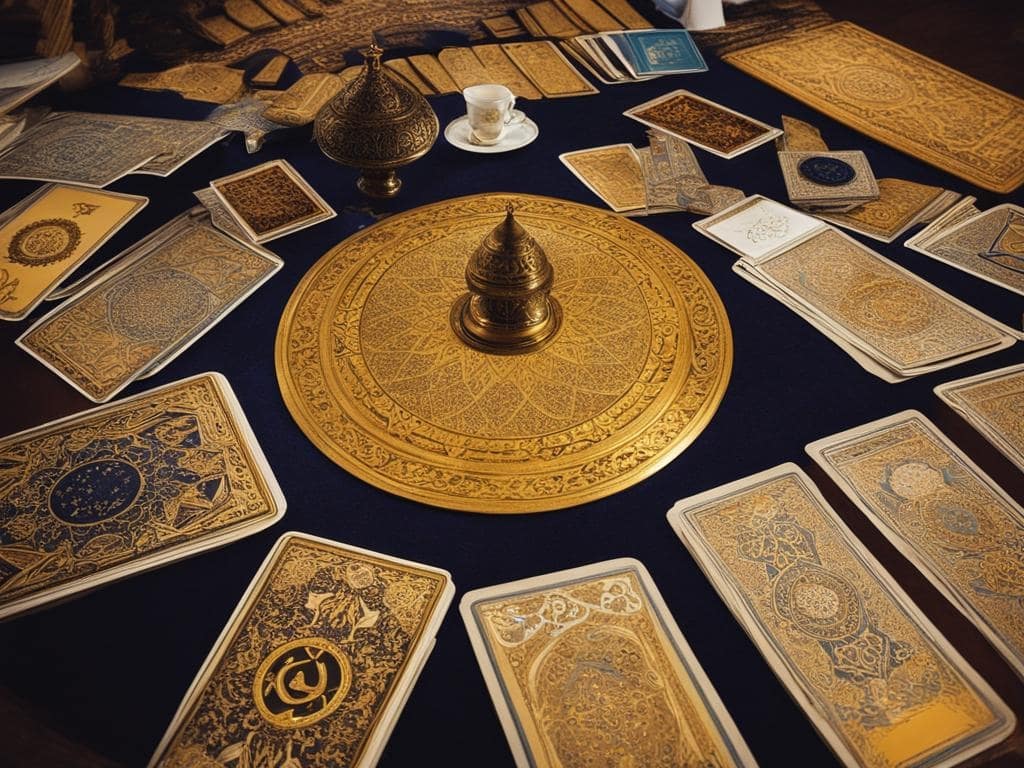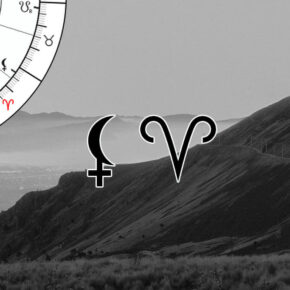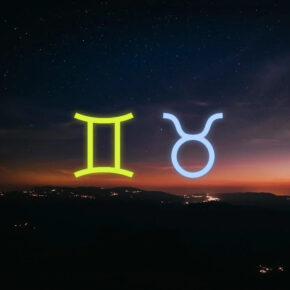Tarot card reading is considered haram, forbidden, in Islam. Yet that doesn’t stop many Muslims from being utterly fascinated by the mystical art of tarot.
Maybe you’ve found yourself up late at night watching YouTube videos of tarot readers doing spreads and explaining the meanings of the colorful cards. Or maybe you’ve even bought your own deck on the sly and do readings for yourself when no one’s looking.
Why Tarot Card Readings Are Haram In Islam
Tarot card reading is considered haram (forbidden) in Islam because it involves divination, which is prohibited. However, many Muslims still find themselves drawn to tarot cards, secretly watching YouTube videos, or even doing their own readings.
As Muslims, we know that only Allah knows the unseen and the future. Tarot cards claim to reveal insights into your life and what’s to come, which contradicts our faith. Some argue that tarot is simply a tool for self-reflection and gaining perspective, not actual fortune-telling. Yet the origins of tarot cards are rooted in mysticism, and they continue to be used by many as a way to predict future events.
Even if you’re just curious to see what the cards might say about your life, tarot reading can be a slippery slope. It may start out as “just for fun” but quickly lead down a path of believing in powers other than Allah and relying on divination rather than faith.
As Muslims, we must resist going against the guidance in the Quran and place our trust fully in Allah alone. Seeking answers from anywhere else, even something as seemingly harmless as tarot cards is a violation of this trust and can open doors to other forbidden practices. It may be difficult, but we must have patience and let the unseen future remain known only to Allah.
The Allure And Popularity of Tarot Cards For Muslims
Many Muslims find tarot cards irresistibly alluring, even though tarot reading is considered haram. Why the forbidden fruit? Well, tarot taps into our innate curiosity about the future and what fate may hold in store for us. The mysterious images on the cards are intriguing and open to interpretation.
Tarot also provides a sense of guidance during times of indecision or transition in life. When you feel lost or unsure of the path forward, a tarot reading can offer a glimpse of possibilities to consider. Some view the cards as a tool for better understanding themselves and gaining insight into situations. The readings are seen as a prompt for self-reflection, not prophecy.
Let’s face it, many Muslims today have an interest in New Age or mystical topics, like astrology, healing crystals, and tarot. The influence of Western occult practices and a desire to explore spirituality beyond strictly Islamic teachings draw people in. Watching tarot videos on YouTube or TikTok, following card readers on social media, and collecting decks of artistic tarot cards have become popular hobbies, especially among younger Muslims.
While tarot cards are considered a form of shirk and divination forbidden in Islam, their popularity will likely only continue to grow. The desire to peek into what the future may hold and find answers during life’s most challenging moments is a very human one, regardless of religious belief or background. For Muslims struggling between faith and curiosity, tarot exerts an irresistible pull.

How To Move Away From Haram Practices Like Tarot Towards A More Spiritual Life
To move away from haram practices like tarot and other practices that go against your faith toward a more spiritual life, here are some suggestions:
Focus On The Quran And Hadith
Spend more time reading and understanding the Quran and Hadith. These are the foundations of Islamic faith and guidance. Fill your mind and heart with the wisdom and teachings from Allah and Prophet Muhammad (PBUH).
Strengthen Your Faith
Work on strengthening your faith and conviction in Islam. Increase your knowledge about core beliefs, pillars of faith, and Islamic principles. The stronger your faith, the less appeal unislamic practices will have.
Find Halal Ways To Meet Your Needs
Often, people turn to haram acts out of curiosity, boredom, or to fulfill certain needs. Find halal alternatives to meet those needs. For example, if you seek spiritual insight or guidance, speak to a scholar or do istikhara. If you desire knowledge of the unseen world, read Islamic books on Sufism or stories of the Prophets.
Rely On Allah Alone
Ultimately, remember that Allah is the only one in control of the unseen world and the future. Seek only His guidance and help. Place complete trust in Him alone. This will eliminate the desire to turn to haram acts like tarot for answers or reassurance. Allah is the best planner and the best guide.
Repent And Make Dua
Repent sincerely for any involvement in tarot or other haram acts. Make dua to Allah to grant you steadfastness in faith and protect you from deviation. Ask for His mercy, forgiveness, and guidance. With repentance and reliance on Allah, you can overcome any attachment to haram practices, tarot included.
Final Words – The Forbidden Fruit Isn’t Always Sweet
While tarot card reading is considered haram in Islam, many Muslims still find themselves drawn to it. Maybe it’s the allure of discovering what the universe has in store for you or a desire to gain insight into life’s mysteries. Whatever the reason, tarot continues to fascinate people from all walks of life, regardless of religious beliefs or cultural backgrounds.
While you may feel conflicted about dabbling in the occult, don’t be too hard on yourself – humans have a natural curiosity and thirst for understanding destiny and spiritual matters.








